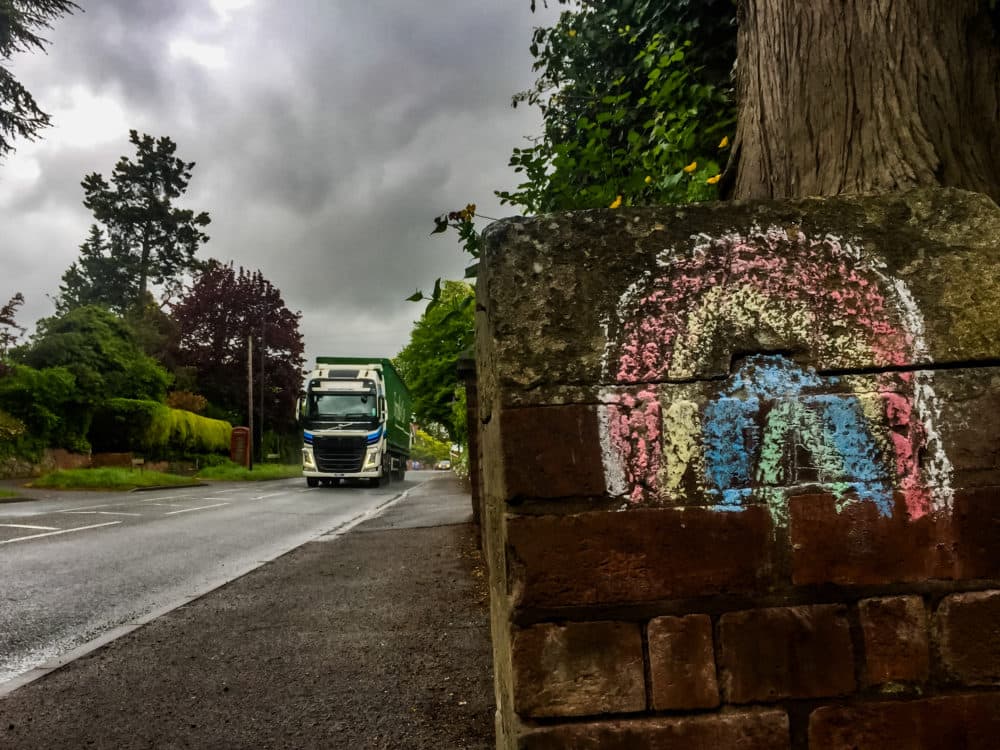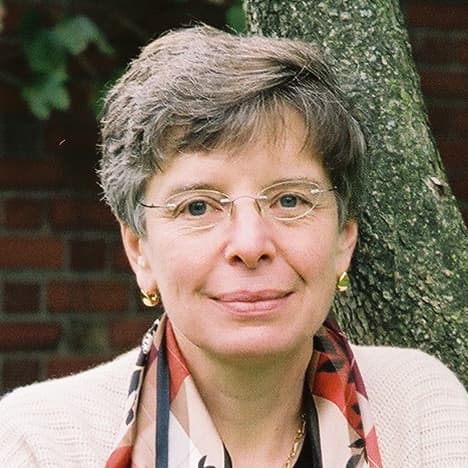Advertisement
Commentary
When I Allow Myself To Hope, This Is The World I Imagine

I have been watching the familiar world tornado into something strange.
At moments I am frightened. I read daily emails from the hospital where I worked for decades, and hear the harrowing truths unstated within the urgent instructions dictating new protocols. I worry for so many endangered folks, some close, others far away, and wonder if — and how soon — I, or those I love, will be among them.
Yet, when I am not needled by panic, or in despair, I am sometimes oddly content, or even unexpectedly, sharply alive. Maybe in all that’s upturned and difficult we can spot new hope for our future.
Yes, hope is always a candle guttering in the dark; still, it can illuminate what is barely-glimpsed, yet possible. And yes, some folks are letting their fear make them mean. But there are plenty of quiet, decent acts. A man posted on our town Facebook page, “Where can I go to offer help?”
Indeed, seeing so many people rise to the moment makes me think we might be able to seize the coronavirus crisis, and use it to help us make the gigantic planet and people-saving changes we must undertake.
Maybe in all that’s upturned and difficult we can spot new hope for our future.
To “save” life as we know it on the planet — countless human lives, and half a billion other species that will be extinguished if we do not act — we need to slow and then reverse climate change. Time is running out, but not yet gone. The good news is that right now, thanks to all that’s already different around us, we’re being offered glimpses of new possibilities and the emotional tools required to alter course and protect nature and ourselves.
Of course nothing’s certain. But maybe the everyday new behaviors the pandemic has forced us to learn quickly — hand washing, social distancing, staying close while far — can teach us that we need not fear other fast, big changes that require us to learn new behaviors to face less present, but equally imminent threats.
Maybe the urban and suburban quiet, and the noticeably clearer vistas, can spotlight for us how green energy is not just already feasible, but truly desirable. If we transform our society into one powered by windmills, solar panels, first-rate public transportation and electric vehicles, our environment will be cleaner, healthier, quieter and safer.
Advertisement
Maybe the good moments now ... can remind us how much satisfaction can be found simply.
Maybe the way this lockdown has forced us to conduct so much work over video platforms can help us travel less for future visits and meetings. Maybe the shutdown shopping malls and prohibition on big projects can help us notice that we don’t immediately crumble when we buy fewer things and create less waste. And — for those of us compensated enough to buy more than the barest necessities — even taking a break from scrambling for the newest and biggest can be a relief.
Maybe seeing so many images of needless illness, suffering and stress of individuals and families overwhelmed with financial worry and worse, will encourage us to take inspiration from other countries that have figured out more generous and humane ways of supporting their citizens. This might include free preschool and affordable college, universal health care, job security and worker protection. The gain of society-wide well-being will be greater than any personal loss.
Maybe the good moments now — those when families feel nurtured by more time together, more sleep, more home-cooked food, more hours outside walking and bicycling — can remind us how much satisfaction can be found simply.
Conversely, maybe the bad moments from constrictions of liberty, of walls crowding in, will help us work harder to repair our democracy, without which there can be no true freedom. Maybe it will also remind us how terrible it is to put too many people in prison for too long.
Maybe generosity can gain the upper hand and hold it for a while.
Maybe the urgent need we all recognize to quickly produce tests, PPE, medicines and vaccines will help us see how important it is to have all levels of government working well. Maybe we will see the limits of privatization, the value of dedicated, honest public servants, and the benefit of strong public institutions — so that hospitals might be fully supplied and front line workers protected before the next pandemic strikes.
Certainly, we can take all the wrong lessons from the moment, too. We can become more tribal, more authoritarian, more undermining of government, more polluting, more selfish and greedy. Some will. But maybe instead, for most, the shared pain of this experience will allow our empathy for each other to deepen. We’ll remember we’re all on the same tiny arc in the same huge ocean.
Maybe generosity can gain the upper hand and hold it for a while. Maybe in feeling this common peril, we will appreciate how cooperation and shared resources can offer us something more satisfying than the relentless quest for dominance through oppression. Maybe we will grasp that we are more resourceful than we thought, and capable of deeper compassion; that we have the will to endure the risk, sacrifice and uncertainty of toiling together for a greener and more peaceful world.
